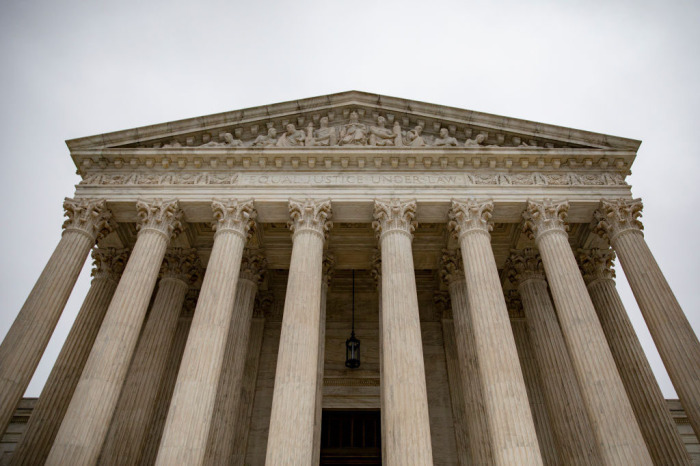Supreme Court says abortion providers can sue Texas, but heartbeat law remains in effect

The United States Supreme Court has released a decision allowing some lawsuits against Texas’ heartbeat abortion ban to move forward, but has not blocked the law that prohibits abortion once a baby's heartbeat can be detected.
In a ruling released Friday morning in the case of Whole Woman’s Health et al. v. Jackson et al., the high court examined whether certain abortion providers could “pursue a pre-enforcement challenge.”
“We conclude that such an action is permissible against some of the named defendants but not others,” wrote Justice Neil Gorsuch, who authored most of the majority opinion.
“This Court has never recognized an unqualified right to pre-enforcement review of constitutional claims in federal court. In fact, general federal question jurisdiction did not even exist for much of this Nation’s history.”
The Supreme Court also rejected an appeal by the Biden administration against Texas' law, labeling it “improvidently granted,” or something that shouldn't have been brought before the justices.
Planned Parenthood denounced the Supreme Court decision in a post on its Twitter account and promised to “keep fighting” against the heartbeat abortion ban.
“The Supreme Court has once again failed to put an end to Texas’ bounty hunting scheme and protect our constitutional rights,” tweeted Planned Parenthood. “They have failed to bring relief to Texas patients and providers who’ve suffered for 100 days under this unconstitutional law.”
Justice Clarence Thomas pointed out during arguments in the case of Dobbs v. Jackson Women’s Health Organization on Dec. 1 that the U.S. Constitution doesn't include the right to abortion, despite what Planned Parenthood and pro-choice activists have long claimed.
Thomas noted: “If we were talking about the Second Amendment, I know exactly what we’re talking about. If we’re talking about the Fourth Amendment, I know what we’re talking about, because it’s written. It’s there. What, specifically, is the right here that we’re talking about?”
Texas Right to Life Director of Media and Communication Kimberlyn Schwartz emailed a statement to supporters celebrating the Supreme Court’s rejection of the Biden administration's challenge.
“We are grateful that the Supreme Court practiced judicial restraint today and stopped the Biden administration’s pro-abortion campaign against the strongest pro-life law being enforced today,” stated Schwartz.
“While we continue to fight for this policy in the lower courts, Texas Right to Life celebrates that the Texas Heartbeat Act will continue saving between 75-100 preborn children from abortion per day.”
In May, Texas' Republican Gov. Greg Abbott signed the ban into law, which prohibits most abortions after a fetal heartbeat is detected, generally around six weeks into a pregnancy.
The law is not enforced through state officials but rather through private citizens who are given financial incentives to sue abortion providers or anyone who helps a woman obtain an illegal abortion.
Despite multiple pre-enforcement legal challenges, including one from the U.S. Department of Justice, the Supreme Court allowed the law to take effect on Sept. 1.





























